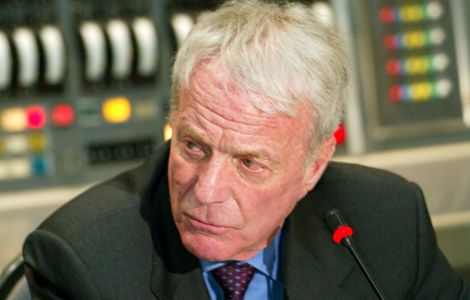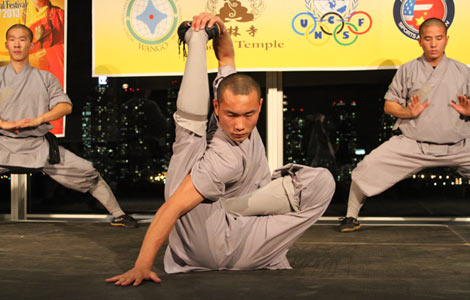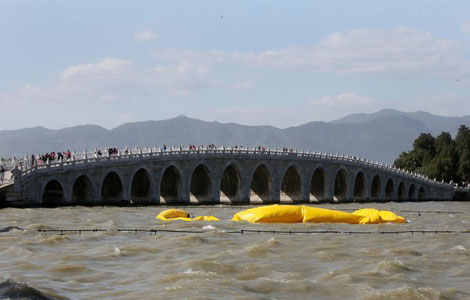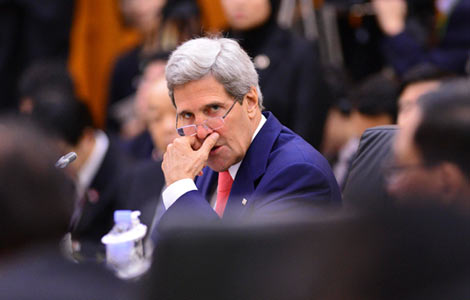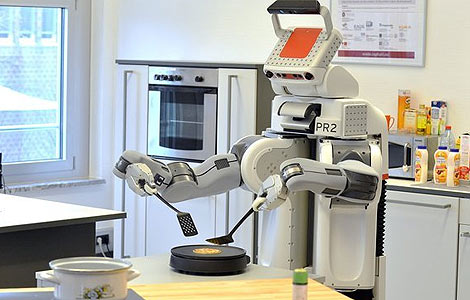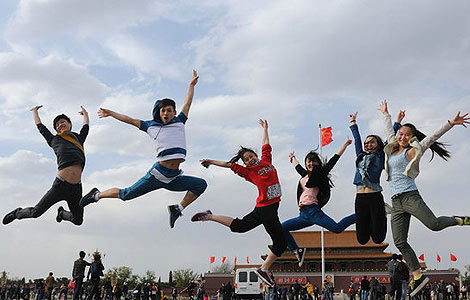Embracing the riddle that is modern day China's success
Updated: 2013-10-11 10:56
By Zhang Yuwei (China Daily)
|
||||||||
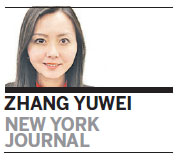
China's growth in the past few decades has become one of the most-discussed topics in the world. It has also generated speculation of a "China threat" theory among some Western pundits.
Gao Qiang, co-author of the new book The Wealth of China: Untangling the Mystery of the World's Second Largest Economy, said China - with its vast lands and rich culture - is still a mystery to many observers, especially Western ones.
"It is understandable why it has been a mystery to many Western observers though," said Gao, a former journalist and an economic commentator who is currently in New York to promote his book. "Observers from the developed economies would use a set of models in history to analyze China, but, unfortunately, those actually don't fit the path China has been taking.
"It is the path of a 'China model' that the country has been embarking on," noted Gao, whose nine-chapter book - covering topics ranging from the economy to politics and social issues - aims to simplify the complex ideas about China's economic success.
"The book tries to answer questions about China's rise in an easy-to-understand way by using examples of different (mostly) economic events in the past thirty years," said Gao. "Hence the purpose of the book - to untangle the mystery of China."
The work is largely based on the first part of a popular documentary China Memorandum, which reviews various core issues in Chinese society, from population, agriculture, and the environment to housing, business and innovation. Social issues such as the youth assault incident by the teenage son of Chinese singer Li Shuangjiang is also discussed in the book, as well as the country's emerging aging problem and the wealth pyramid.
"Some of the examples, such as the 1997 financial crisis in Asia, which many Western experts predicted China would fall into, are out of Western pundits' predictions because they don't understand China well enough to make those kind of predictions," said Gao.
The book cites that in 2000 - when Asia was slowly recovering from the financial crisis - China's total economic output ranked No 8 in the world with a per capita GDP of $849.
Part of the mystery might be explained by a children's story - Little Horse and the River - which tells about how young horses test the river before crossing it. "Throughout the path of development, and along with the ups and downs of the economy, China continuously throws out riddles one after another, then changes course and takes a 180 degree turn, which no one can really understand," Gao writes.
"There is no ready theory that economists can match up with China's development track, which is unique," said Gao. On this point, the book noted that China and Western countries face differences in natural resources and the latter walk the path of "develop first, clean up later".
The book is not just a collection of descriptions of past events and analysis, it cites the work of famous Chinese writers, such as Lu Xun (one of China's leading literary figures of the 20th century), to explain China to outside observers.
Gao, a former journalist and TV producer for China Central Television, said he had interviewed a number of Western economists - including Nobel laureates Niall Ferguson and John Nash - for their views on China and its economy.
"Western observers are very knowledgeable in the 'information' aspect of China, but lack a deeper understanding of the culture and its nuances, which often creates some disconnects we see today, including the 'China threat' debate," noted Gao.
Gao recalled getting together with leading sociologists and scholars to set the "forward-looking" tone that the book wraps up with.
"Under the China model, there is freedom and there is no commotion, there is firm control and there is also a state of unbridled abandon," the author referred to a line in the book's preface. "We are happy to be in it, and we are aloof. It is hard to discern whether we are beneficiaries, victims, onlookers, or a combination of the three."
The book concludes that Chinese people who witnessed the three decades of transformation of this economic superpower are "fortunate".
"Amid happiness, anxiety, and confusion, we have inherited the wealth that tradition had left us and which continues to innovate," the author concludes. "The riddles will continue; we have no choice but to embrace them."
Contact the writer at yuweizhang@chinadailyusa.com
(China Daily USA 10/11/2013 page10)
Most Viewed
Editor's Picks

|

|

|

|

|

|
Today's Top News
Nobel literature winner's work snubbed in China
Opportunity knocks for US businesses
KFC needs new faces, not new ad campaign
Trending news across China on Oct 11
Xi ignites Australia's zeal for FTA deal
Fire at Fukuoka hospital leaves 10 dead
Yellen will focus on domestic economy
IMF cautions over DC debt drama
US Weekly

|

|
